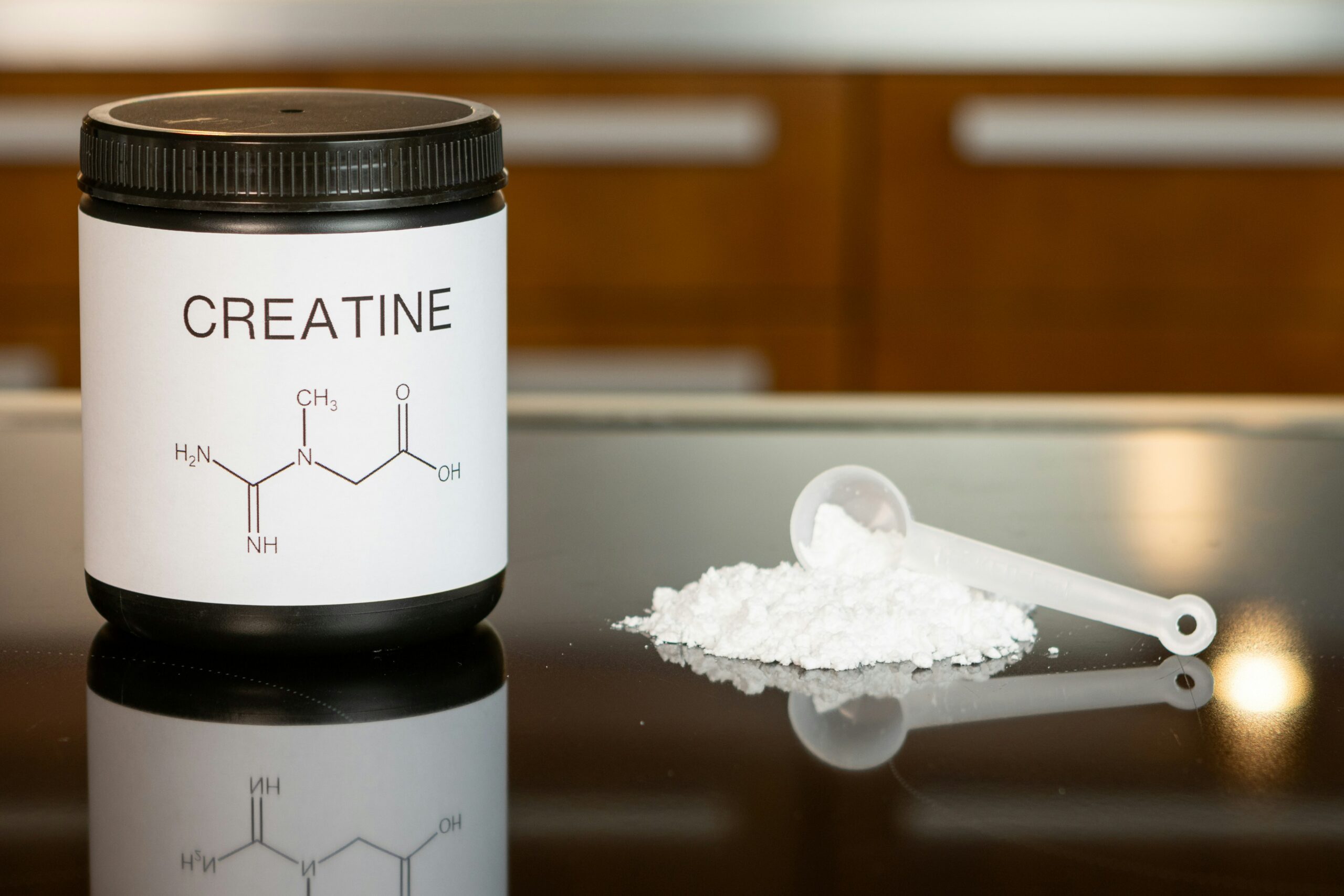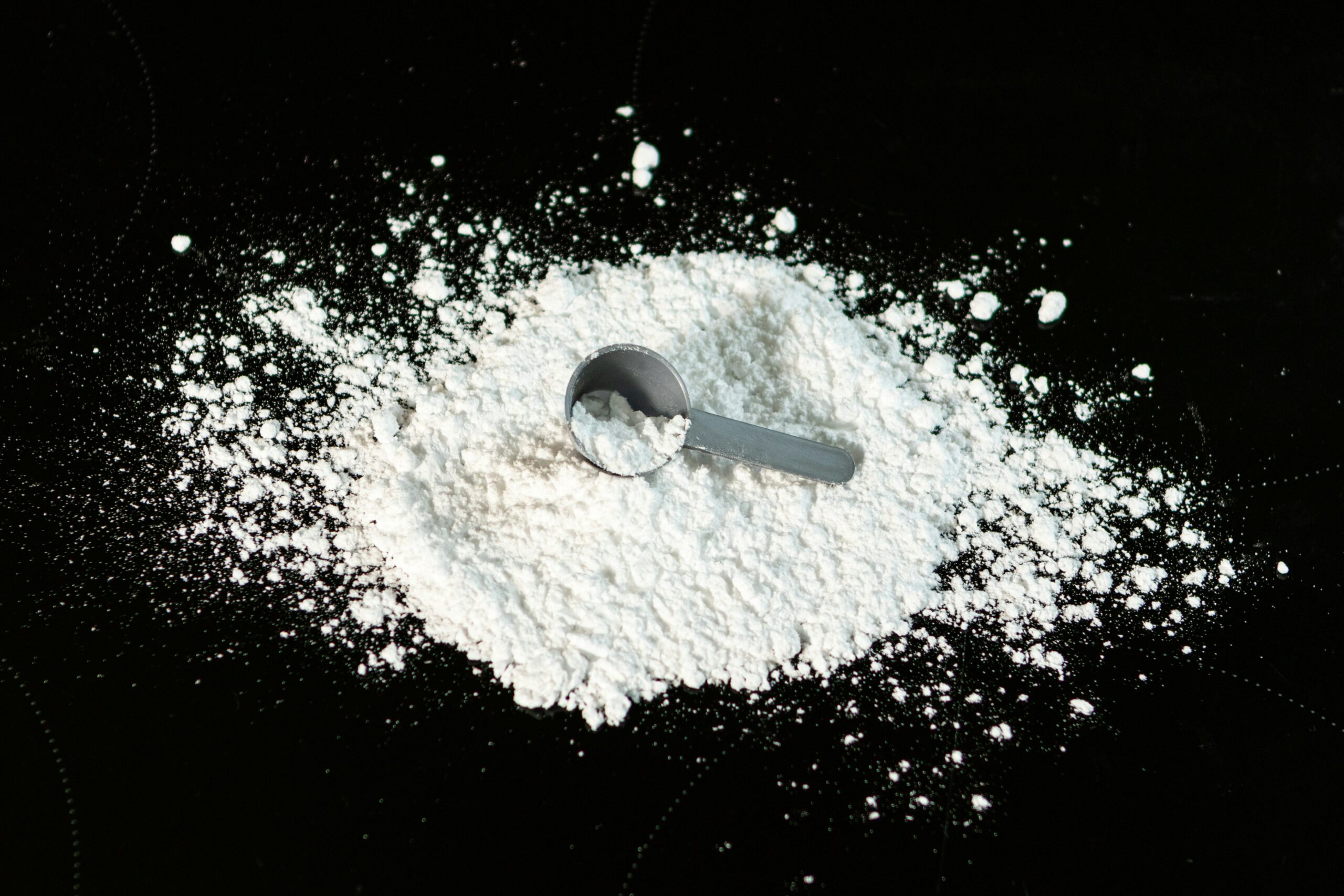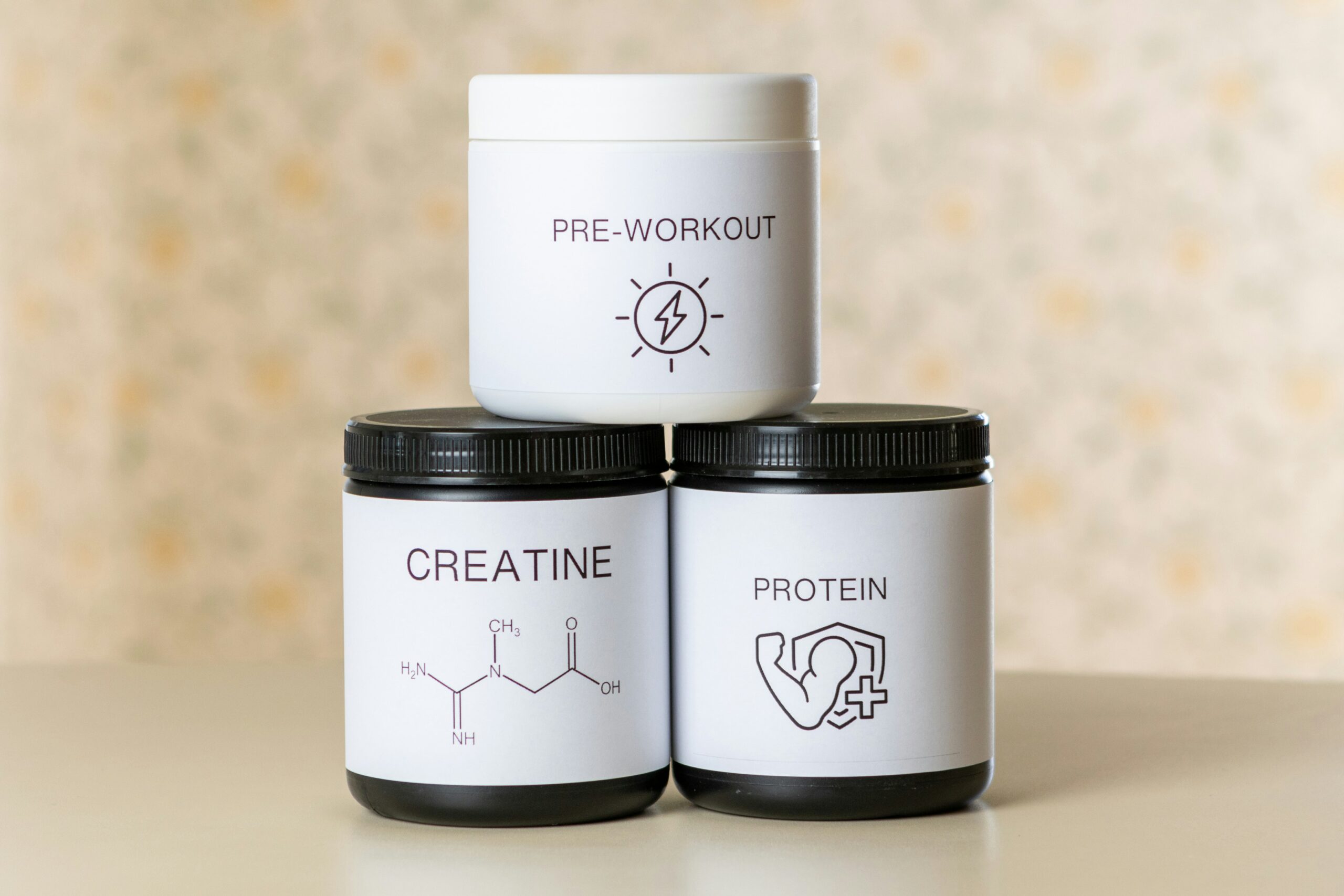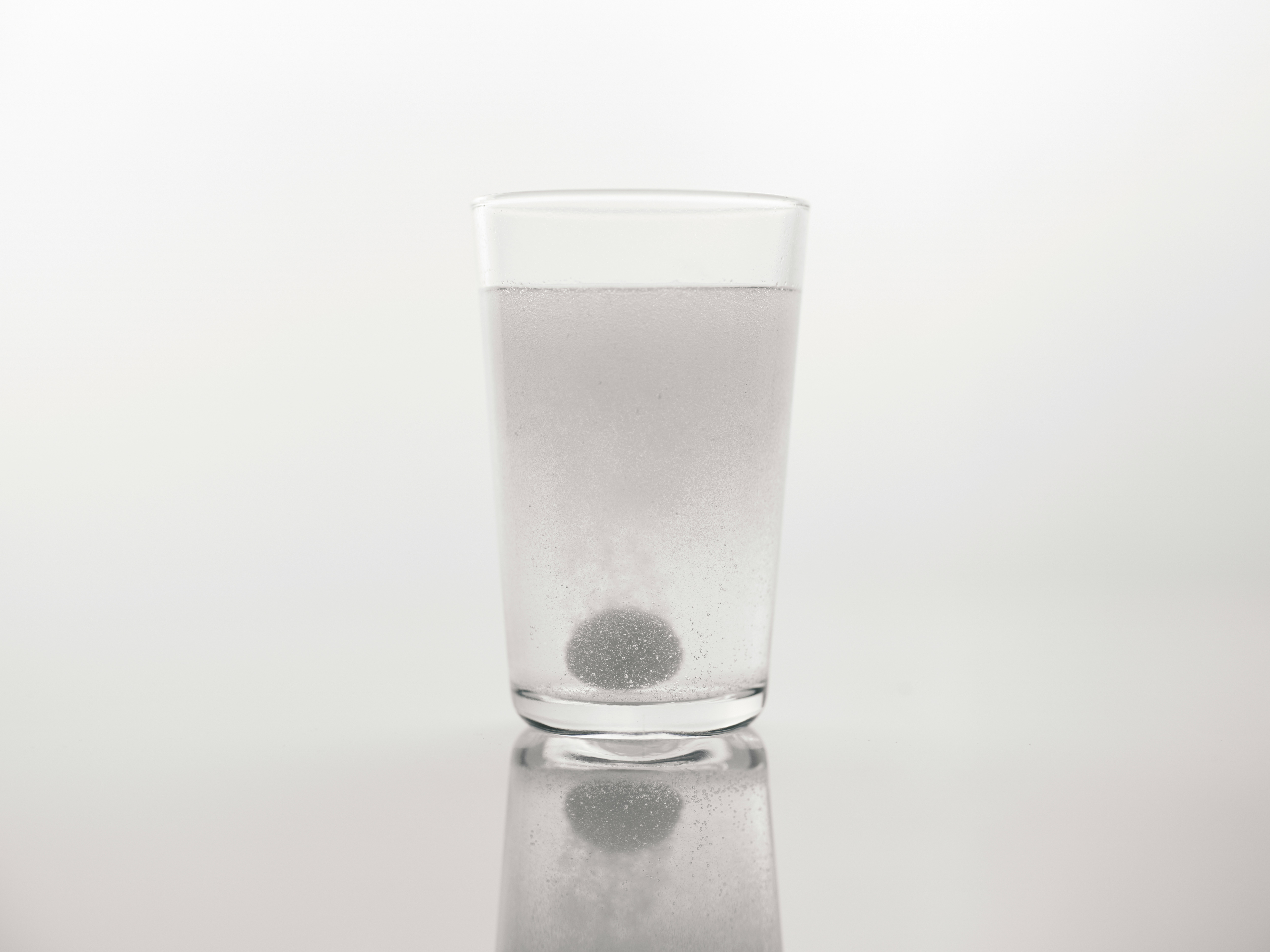Creatine is a type of chemical compound with specific properties. In the human body, creatine is mainly found in muscles and tendons. The amino acid is produced in the kidneys, liver, and pancreas. Chemical transformation converts this compound into phosphocreatine. This process is essential for energy storage.
Physically active people mainly use creatine. Creatine has many health benefits and is additionally relatively safe. Like any substance, creatine can have side effects, so adhering to the correct dosage is essential. We recommend that your doctor assess any dietary supplement you wish to include.

Creatine belongs to the group of nutritional ergogenic![]() agents. Creatine is a naturally occurring chemical compound made up of amino acids
agents. Creatine is a naturally occurring chemical compound made up of amino acids![]() . It is produced endogenously in the human body, providing half of this component's daily requirement. The remaining creatine can be supplied in food products and through supplementation. Many studies have been conducted on creatine and its properties and have shown that creatine has several health benefits, which include:
. It is produced endogenously in the human body, providing half of this component's daily requirement. The remaining creatine can be supplied in food products and through supplementation. Many studies have been conducted on creatine and its properties and have shown that creatine has several health benefits, which include:
Creatine influences multifaceted mechanisms, which include increasing energy capacity. As a result of chemical metabolism, it is converted into phosphocreatine![]() and is used by the body to store energy. Free energy is used in cellular metabolism, which means that a better supply of creatine results in greater energy deposits and, thus, an increase in the working capacity of muscle cells during exercise. This property of creatine is particularly emphasized by athletes who aim to increase physical performance during training. Creatine also replenishes energy depleted due to mental fatigue or medical conditions.
and is used by the body to store energy. Free energy is used in cellular metabolism, which means that a better supply of creatine results in greater energy deposits and, thus, an increase in the working capacity of muscle cells during exercise. This property of creatine is particularly emphasized by athletes who aim to increase physical performance during training. Creatine also replenishes energy depleted due to mental fatigue or medical conditions.
Another aspect of creatine delivery crucial for physically active people is its role in increasing muscle mass. Some results also indicated that creatine minimizes bone mass loss. The gain in lean muscle mass is increased with additional and regular physical activity. Creatine inhibits anti-catabolic processes and simultaneously stimulates muscle tissue growth processes. Water and glycogen are stored in muscle tissue, contributing to muscle mass gain. In addition, creatine helps with recovery, as active people experience fewer musculoskeletal injuries.

In addition to essential effects for physically active people, creatine has additional health benefits, such as controlling lipid levels![]() . Creatine helps to lower cholesterol and triglyceride levels. Additionally, it reduces fat accumulation in the liver. Correct cholesterol levels are essential and influence many health factors. First and foremost, lowering cholesterol levels that are too high reduces the risk of cardiovascular diseases, such as atherosclerosis.
. Creatine helps to lower cholesterol and triglyceride levels. Additionally, it reduces fat accumulation in the liver. Correct cholesterol levels are essential and influence many health factors. First and foremost, lowering cholesterol levels that are too high reduces the risk of cardiovascular diseases, such as atherosclerosis.
Another benefit of creatine is its effect on glycemia![]() . Glycemic monitoring means controlling blood sugar levels. Maintaining glycaemic control fulfills many functions necessary for optimal and safe metabolic equilibrium. This is particularly important for people with diabetes. However, an overall healthy lifestyle should be kept in mind. In studies, creatine supplementation combined with an exercise program has been observed to improve glycemic control.
. Glycemic monitoring means controlling blood sugar levels. Maintaining glycaemic control fulfills many functions necessary for optimal and safe metabolic equilibrium. This is particularly important for people with diabetes. However, an overall healthy lifestyle should be kept in mind. In studies, creatine supplementation combined with an exercise program has been observed to improve glycemic control.
Homocysteine is a chemical compound formed in the human body during protein digestion. This amino acid makes average cell growth and the regeneration of damaged tissues possible. However, an excess of this component adversely affects the body, as it increases the risk of hypothyroidism and cardiovascular disease![]() . Researchers have noted that creatine lowers excessively high homocysteine levels, which protects against many diseases.
. Researchers have noted that creatine lowers excessively high homocysteine levels, which protects against many diseases.
Creatine also affects brain function by increasing phosphocreatine stores in the brain, which has many positive effects. When taken, creatine improves cognitive function, especially in seniors. Seniors often struggle with diseases that impair their brain and nervous system function, so creatine supplementation in the older population is beneficial. It may also be necessary for neurological conditions![]() and symptom control. Additionally, in some cases, creatine affects the effectiveness of some antidepressants.
and symptom control. Additionally, in some cases, creatine affects the effectiveness of some antidepressants.
Creatine comprises amino acids such as methionine, glycine, and arginine. The vast majority of creatine in the human body is found in muscle, with the remainder found in the heart, brain, and other tissues. The level of creatine produced by the body provides about half of the daily requirement of this ingredient, so supplementation is often recommended. Creatine is a well-researched ingredient that is judged to be safe. However, it is advisable to consult a doctor for any supplementation.

Dietary supplements are not drugs, but it is essential to be responsible in dosage, as any substance supplied to the body affects its functioning. This also applies to creatine, which should be consumed in specific doses, considering age and body weight. A total creatine intake is 120 mmol/kg![]() dry muscle mass for a 70 kg person. This applies to people who maintain a healthy diet rich in protein from meat and fish.
dry muscle mass for a 70 kg person. This applies to people who maintain a healthy diet rich in protein from meat and fish.
For those on a vegetarian diet, the creatine requirement may be higher. Creatine degradation is also increased in physically active people with greater muscle mass. In summary, statistically, the average person can take around 2-5 g![]() of creatine per day to maintain levels of this component. However, factors such as type of diet, muscle mass, and physical activity can affect the value of the daily creatine requirement.
of creatine per day to maintain levels of this component. However, factors such as type of diet, muscle mass, and physical activity can affect the value of the daily creatine requirement.
Different types of creatine can be supplemented. Each type may vary slightly due to the combination of creatine with other ingredients. Different types of creatine may have different bioavailability![]() and biochemical stability. However, all creatine combinations have the same mode of action. Distinctions include:
and biochemical stability. However, all creatine combinations have the same mode of action. Distinctions include:
Creatine monohydrate is a type of supplement that is formed by combining creatine with a water molecule. It is the standard type of creatine supplied in supplement form and is popular with physically active people. However, due to the presence of water, creatine monohydrate affects subcutaneous water retention, so some people choose other forms of creatine for daily supplementation. However, due to the few studies on alternative forms of creatine![]() , this type remains the most extensively researched, demonstrating efficacy and safety.
, this type remains the most extensively researched, demonstrating efficacy and safety.
Creatine malate is a type of supplement that is a combination of three keratin molecules with one molecule of malic acid. Adding malic acid is essential as it causes increased energy production and has a positive effect on bowel function. In addition, this type of creatine causes less subcutaneous water retention. In addition, creatine malate shows better effects than monohydrate, as it builds muscle mass of better quality.

This type of the supplement contains creatine molecules combined with citric acid. Citrates have many functions related to the metabolism of the body's cells and are involved in numerous biochemical reactions. The presence of citrate increases the absorption of creatine. Thanks to this combination, this type of creatine gains very high stability in the digestive tract and resistance to pH changes. Citrate is involved in metabolic processes, while the effects are similar to creatine malate.
Creatine can also be combined with magnesium chelate for exciting effects. The mechanisms of action of magnesium chelate result from the properties of magnesium ions. In this combination, creatine is characterized by excellent absorption. Creatine directly renews energy reserves in the cells, while magnesium significantly affects the body's hydration status. Magnesium also increases the inhibition of mental fatigue. The formula is based on combining creatine and magnesium molecules into a single molecule.
Many studies on creatine indicate that supplementation with this ingredient is safe. However, despite this, like any other type of supplementation, creatine can cause side effects. Creatine is well tolerated in short-term studies![]() , so more long-term studies are needed to see the impact of creatine supplementation. Also, the effects of creatine were more significant for short-term, high-intensity activities. In contrast, some reports have linked creatine supplementation to the following side effects:
, so more long-term studies are needed to see the impact of creatine supplementation. Also, the effects of creatine were more significant for short-term, high-intensity activities. In contrast, some reports have linked creatine supplementation to the following side effects:
As is well known, creatine affects muscle mass, resulting in muscle growth. Due to this effect, taking creatine also increases body weight overall. However, creatine supplementation often increases body weight, which is not only related to the rise in muscle mass. An increase in the intracellular concentration of creatine causes an osmotic influx of water into the cells, which affects the overall weight gain.
A muscle cramp is a sudden, brief, localized pain in various body parts, depending on the muscle. The pain restricts mobility or wakes the person from sleep. Researchers have noted that creatine can affect the occurrence of cramps. Some people taking creatine developed severe muscle cramps. Experts believe that creatine can lead to dehydration and increase the risk of muscle injury. Therefore, it is essential to take supplements responsibly; if side effects occur, a doctor should be consulted.

Another side effect of creatine can be dehydration. Some types of creatine are related to the body's water management. Creatine supplementation can increase water absorption, although much depends on the timing and amount taken. When supplementing with creatine, it is worth paying attention to taking in adequate amounts of fluids.
Gastrointestinal disorders are very often linked to diet and supplementation. Creatine intake may be associated with nausea, gastrointestinal complaints, and diarrhea. Individual scientific reports confirm that creatine can cause gastrointestinal problems. However, this has usually been associated with high doses of creatine intake.
Researchers have raised concerns about creatine's negative effect on kidney function. Some studies have suggested that creatine may reduce kidney function; however, these are few cases. For healthy individuals without kidney problems, taking the recommended doses of creatine should not affect organ function.
Many people wonder whether creatine supplementation during pregnancy is safe. However, research shows that not only is creatine safe to take during pregnancy, but it can also have a positive effect on fetal development and the safety of this condition. This is because the fetus relies on the placental transfer of maternal creatine![]() , which continues until late in pregnancy.
, which continues until late in pregnancy.
Consequently, this component has increased demand and utilization during pregnancy. It has been postulated that creatine may have beneficial effects on fetal growth, development, and health, but this area of research may have broad implications for fetal and child health. It is worth remembering that any supplement should be consulted with a specialist beforehand, and pregnant women should be particularly cautious about taking different substances.

Studies have highlighted improved brain bioenergetics following creatine supplementation. Creatine metabolism is associated with dendrites, axons' growth, and neuronal growth cones' migration. Due to its neuroprotective properties, creatine may be a promising agent for improving fetal neuronal development. Animal studies have shown that creatine supplementation in pregnant women alleviated neurological damage in the fetal brain and was associated with increased child survival.
In addition to its effects on the baby's neural development, creatine taken during pregnancy may also reduce complications resulting from birth necrosis. This is related to the fact that creatine metabolism changes as pregnancy progresses. It has been noted that supplementation in a woman's diet can minimize the potential risk of fetal hypoxia and perinatal brain damage. However, further research is needed on the benefits pregnant women may derive from creatine supplementation.
Creatine is a chemical compound whose primary occurrence is in muscles and tendons. Creatine supplementation is well-researched and safe, with side effects rarely occurring. Creatine promotes the development of muscle tissue and increases energy output. In addition to these crucial benefits for physically active people, creatine also has other health benefits. Studies even indicate that creatine taken by pregnant women can have a positive effect on fetal development. However, being responsible for creatine supplementation and not exceed recommended doses is essential.